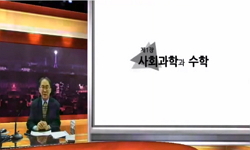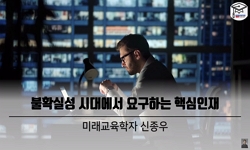A well known game-theoretic model of tax compliance developed by Graetz et al.(1986) predicts the optimal equilibrium strategies of taxpayers and tax auditors when a common knowledge assumption of individual rationality is applied to game participants...
http://chineseinput.net/에서 pinyin(병음)방식으로 중국어를 변환할 수 있습니다.
변환된 중국어를 복사하여 사용하시면 됩니다.
- 中文 을 입력하시려면 zhongwen을 입력하시고 space를누르시면됩니다.
- 北京 을 입력하시려면 beijing을 입력하시고 space를 누르시면 됩니다.
https://www.riss.kr/link?id=A104832524
-
저자
김정권 (이화여자대학교)
- 발행기관
- 학술지명
- 권호사항
-
발행연도
2017
-
작성언어
English
-
주제어
게임이론 ; 인지적 편향 ; 조세순응 ; 불확실성 ; 전략적 행동 ; Game theory ; Cognitive bias ; Tax compliance ; Uncertainty ; Strategic behavior
-
등재정보
KCI등재
-
자료형태
학술저널
-
수록면
141-156(16쪽)
-
KCI 피인용횟수
0
- DOI식별코드
- 제공처
-
0
상세조회 -
0
다운로드
부가정보
다국어 초록 (Multilingual Abstract)
The hypotheses in this study assume that the auditor with limited rationality is sensitive to both the proportion of unethical taxpayers and uncertainty about the proportion. To represent limited rationality, this study proposes that the auditor makes the audit strategy choice through an anchoring and adjustment process. The anchor is a function of the factors that directly affect the auditor, such as the audit cost. The adjustment is a function of the auditor’s expectation about the taxpayer’s reporting strategy. The experiment in this study operationalizes the game-theoretic model of Graetz, et al.(1986) to examine how the auditor with limited rationality responds to the variation in the proportion of unethical taxpayers and uncertainty about the proportion of unethical taxpayers.
The experimental results show a significantly positive relationship between the level of unethical taxpayers and the audit probability. The results show that the auditors used the level of unethical taxpayers as a cue for setting an anchor for the audit rate. The auditors who know the level of unethical taxpayers increase the audit probability as the level increases. When the level of unethical taxpayers is common knowledge, the auditors respond to normatively irrelevant variation in the level of unethical taxpayers, reflecting non-strategic or simple strategic thinking. The experiment also shows how to eliminate the auditors’ strategic decision bias by suppressing normatively irrelevant information, given the previous experimental results showing that humans normally cannot work through the higher levels of strategic thinking as predicted by game-theoretic models. When the auditors know the level of unethical taxpayers in each round, they commit the bias of under-auditing when the level is low. However, when the auditors know only the uniform distribution over possible levels of unethical taxpayers, the tendency to under-audit disappears. A counterintuitive policy implication for auditors is to ignore variation in the proportion of unethical taxpayers unless the variation is a private information.
A key element in the hypothesis development and experimental design is the players’ formation of a belief about their opponent’s strategy and incorporation of this belief into their own strategy choice. Future research might further examine the belief formation process and its impact on strategy choice, in two ways. One way is to elaborate the subjects’ task. A future experiment additionally might collect the subjects’ estimates of their opponent’s estimate of their own strategy. The extra data would clarify how the subjects make belief-based adjustments in their strategy choice. The other way is to simplify the taxpayers’ reasoning process by informing the audit probability before they state their under-reporting probability.
A well known game-theoretic model of tax compliance developed by Graetz et al.(1986) predicts the optimal equilibrium strategies of taxpayers and tax auditors when a common knowledge assumption of individual rationality is applied to game participants. Previous experimental evidence in tax compliance game setting, however, shows that decision makers face cognitive limitations. That is, tax auditors and taxpayers adjust their strategy based on a belief about the opponent’s response to parametric change, but do not correctly recognize that their opponent does likewise(Kim 2011).
The hypotheses in this study assume that the auditor with limited rationality is sensitive to both the proportion of unethical taxpayers and uncertainty about the proportion. To represent limited rationality, this study proposes that the auditor makes the audit strategy choice through an anchoring and adjustment process. The anchor is a function of the factors that directly affect the auditor, such as the audit cost. The adjustment is a function of the auditor’s expectation about the taxpayer’s reporting strategy. The experiment in this study operationalizes the game-theoretic model of Graetz, et al.(1986) to examine how the auditor with limited rationality responds to the variation in the proportion of unethical taxpayers and uncertainty about the proportion of unethical taxpayers.
The experimental results show a significantly positive relationship between the level of unethical taxpayers and the audit probability. The results show that the auditors used the level of unethical taxpayers as a cue for setting an anchor for the audit rate. The auditors who know the level of unethical taxpayers increase the audit probability as the level increases. When the level of unethical taxpayers is common knowledge, the auditors respond to normatively irrelevant variation in the level of unethical taxpayers, reflecting non-strategic or simple strategic thinking. The experiment also shows how to eliminate the auditors’ strategic decision bias by suppressing normatively irrelevant information, given the previous experimental results showing that humans normally cannot work through the higher levels of strategic thinking as predicted by game-theoretic models. When the auditors know the level of unethical taxpayers in each round, they commit the bias of under-auditing when the level is low. However, when the auditors know only the uniform distribution over possible levels of unethical taxpayers, the tendency to under-audit disappears. A counterintuitive policy implication for auditors is to ignore variation in the proportion of unethical taxpayers unless the variation is a private information.
A key element in the hypothesis development and experimental design is the players’ formation of a belief about their opponent’s strategy and incorporation of this belief into their own strategy choice. Future research might further examine the belief formation process and its impact on strategy choice, in two ways. One way is to elaborate the subjects’ task. A future experiment additionally might collect the subjects’ estimates of their opponent’s estimate of their own strategy. The extra data would clarify how the subjects make belief-based adjustments in their strategy choice. The other way is to simplify the taxpayers’ reasoning process by informing the audit probability before they state their under-reporting probability.
참고문헌 (Reference)
1 Graetz, M., "The tax compliance game: Toward an interactive theory of law enforcement" 2 : 1-32, 1986
2 김정권, "Strategic Thinking in Tax Reporting" 한국세무학회 12 (12): 229-256, 2011
3 Ellsberg, D., "Risk, ambiguity, and savage axioms" 643-669, 1961
4 Camerer, C, "Recent developments in modeling preference: uncertainty and ambiguity" 325-370, 1992
5 Camerer, C., "Progress in behavioral game theory" 11 : 167-188, 1997
6 Elster, J., "Nuts and bolts for the social sciences" Cambridge University Press 1989
7 Simon, H., "Models of Bounded Rationality:Behavioral Economics and Business Organization" MIT Press 1982
8 Tversky, A., "Judgment under uncertainty: Heuristics and biases" 185 : 1124-1131, 1974
9 Fudenberg, D., "Game Theory" MIT Press 1993
10 Waller, W., "Expermental Business Research" Kluwer 2002
1 Graetz, M., "The tax compliance game: Toward an interactive theory of law enforcement" 2 : 1-32, 1986
2 김정권, "Strategic Thinking in Tax Reporting" 한국세무학회 12 (12): 229-256, 2011
3 Ellsberg, D., "Risk, ambiguity, and savage axioms" 643-669, 1961
4 Camerer, C, "Recent developments in modeling preference: uncertainty and ambiguity" 325-370, 1992
5 Camerer, C., "Progress in behavioral game theory" 11 : 167-188, 1997
6 Elster, J., "Nuts and bolts for the social sciences" Cambridge University Press 1989
7 Simon, H., "Models of Bounded Rationality:Behavioral Economics and Business Organization" MIT Press 1982
8 Tversky, A., "Judgment under uncertainty: Heuristics and biases" 185 : 1124-1131, 1974
9 Fudenberg, D., "Game Theory" MIT Press 1993
10 Waller, W., "Expermental Business Research" Kluwer 2002
11 Zimbelman, M, "An experimental investigation of auditor-auditee interaction under ambiguity" 37 (37): 135-155, 1999
동일학술지(권/호) 다른 논문
-
- 아시아.유럽미래학회
- 장주신
- 2017
- KCI등재
-
Origins of Naxalism and Indian Governmental Response
- 아시아.유럽미래학회
- 전광호
- 2017
- KCI등재
-
LOCK&LOCK은 중국에서 어떻게 성공할 수 있었는가
- 아시아.유럽미래학회
- 박경희
- 2017
- KCI등재
-
동아시아 제조업 업종별 고용효과의 DEA를 활용한 분석-한국의 경남지역을 중심으로-
- 아시아.유럽미래학회
- 민대기
- 2017
- KCI등재
분석정보
인용정보 인용지수 설명보기
학술지 이력
| 연월일 | 이력구분 | 이력상세 | 등재구분 |
|---|---|---|---|
| 2022 | 평가예정 | 재인증평가 신청대상 (재인증) | |
| 2019-01-01 | 평가 | 등재학술지 유지 (계속평가) |  |
| 2016-01-01 | 평가 | 등재학술지 유지 (계속평가) |  |
| 2012-01-01 | 평가 | 등재학술지 선정 (등재후보2차) |  |
| 2011-01-01 | 평가 | 등재후보 1차 PASS (등재후보1차) |  |
| 2009-01-01 | 평가 | 등재후보학술지 선정 (신규평가) |  |
학술지 인용정보
| 기준연도 | WOS-KCI 통합IF(2년) | KCIF(2년) | KCIF(3년) |
|---|---|---|---|
| 2016 | 0.55 | 0.55 | 0.47 |
| KCIF(4년) | KCIF(5년) | 중심성지수(3년) | 즉시성지수 |
| 0.47 | 0.46 | 0.727 | 0.13 |




 KCI
KCI 스콜라
스콜라






